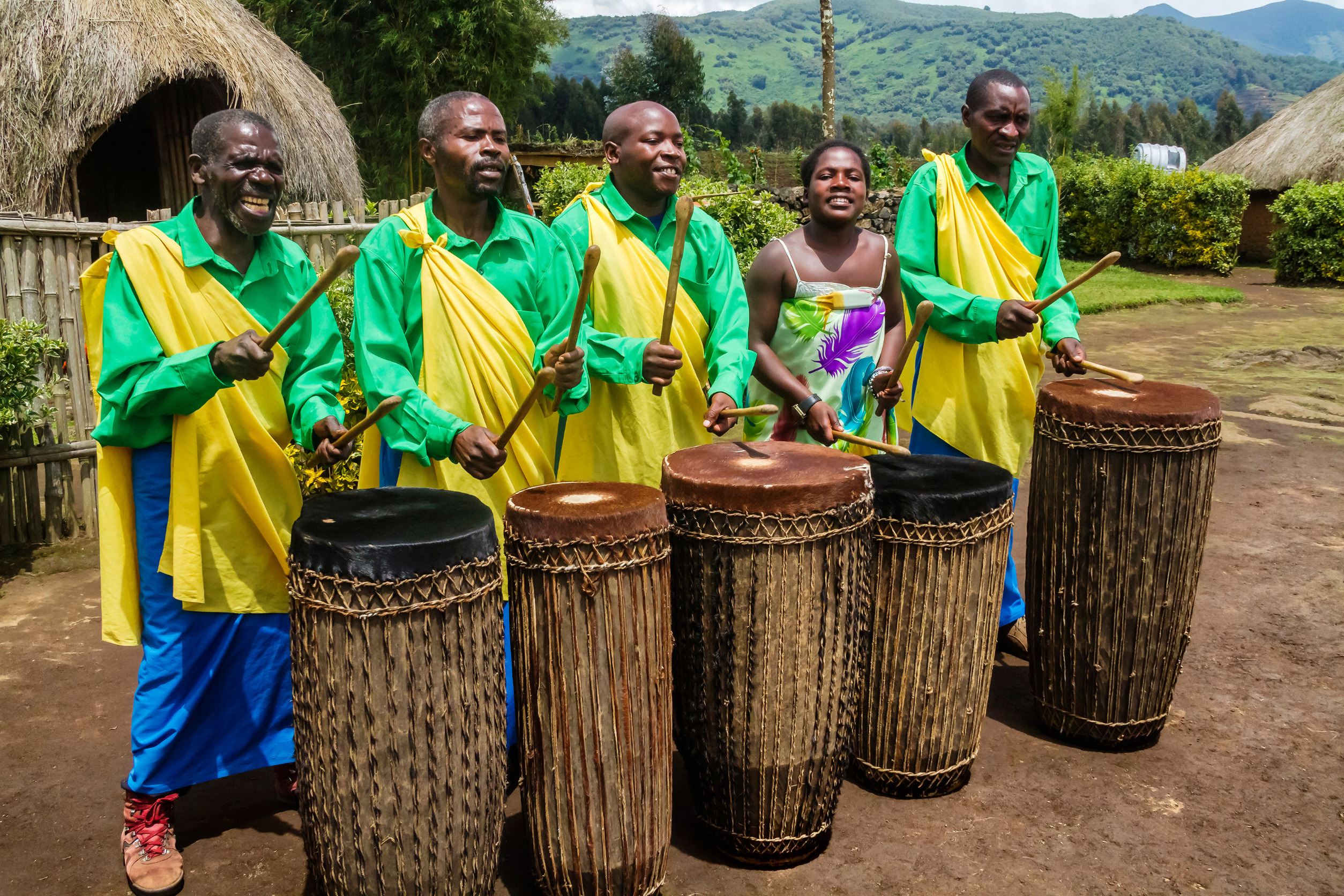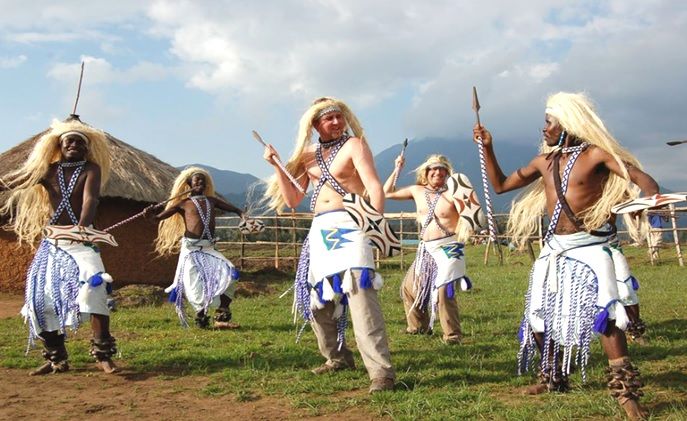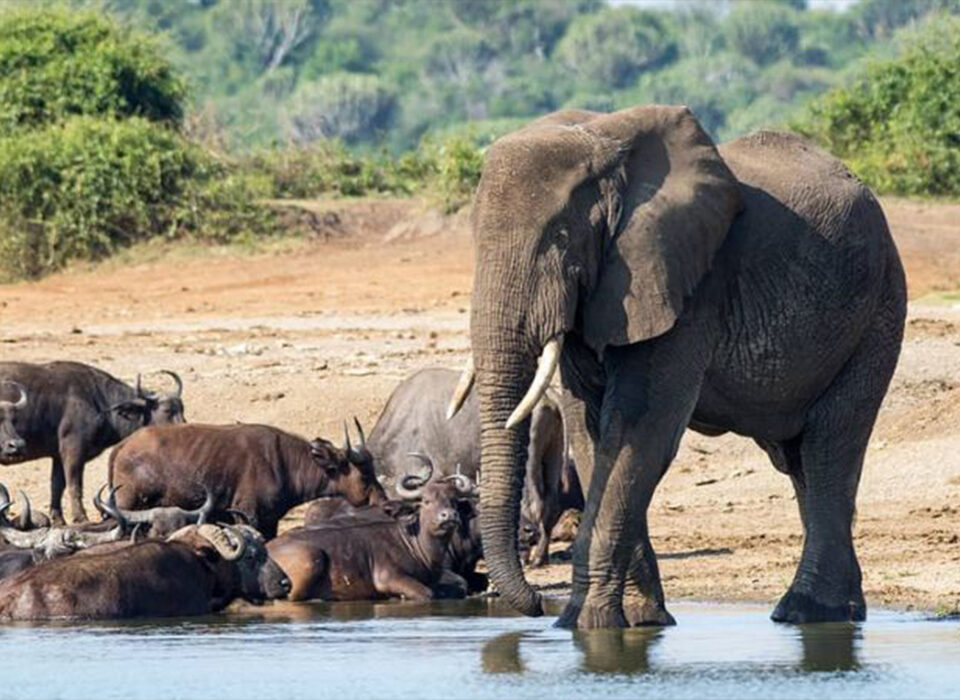
What are the best coffee shops in Kigali?
November 13, 2025
What traditional foods should I try in Rwanda?
November 13, 2025What’s Rwandan Culture Like?
Rwandan culture is one of the most captivating and deeply rooted cultural identities in East Africa, shaped by centuries of tradition, community life, storytelling, resilience, and a profound connection to the land. Known as the “Land of a Thousand Hills,” Rwanda’s landscape is breathtaking, but it is the people, their values, and their harmonious way of life that often leave the deepest impression on travelers. Exploring Rwanda means discovering a culture that is gentle yet powerful, modern yet respectful of tradition, and unified by shared history and hope. This detailed guide dives into the heart of Rwandan culture, helping travelers understand what makes this small but extraordinary country so unique, welcoming, and unforgettable.
A Country Built on Community and Unity
One of the most defining aspects of Rwandan culture is its strong sense of community. Historically, Rwanda’s social structure was built around families, clans, and larger community groups that worked together to farm, build homes, and support one another through life’s challenges. Even today, Rwandans maintain this communal way of living, emphasizing cooperation, mutual respect, and collective progress.
After the 1994 Genocide against the Tutsi, the value of unity became even more important. Rwanda rebuilt itself through national healing and reconciliation efforts. Today, unity is not just a cultural value but a way of life: communities come together for Umuganda, a monthly communal service day where citizens clean neighborhoods, repair roads, build homes, and strengthen the bonds that hold society together. Witnessing Umuganda offers visitors a genuine glimpse into how seriously Rwandans take the idea of working for the common good.
Language, Identity, and Expression
Rwanda is a multilingual country, but Kinyarwanda is the heartbeat of national communication. Spoken by nearly everyone, it plays a central role in unifying the population. The language is melodic and rich with proverbs, many of which reflect the values of humility, patience, and human connection.
French and English are also widely used, particularly in education, business, and government. In recent years, English has become the primary language for instruction in schools, and many young people speak it fluently. Swahili is spoken in markets and border towns, reflecting Rwanda’s integration into the East African Community.
Language in Rwanda is more than communication; it is a vessel of cultural continuity. Through oral traditions, poetry, and storytelling, elders pass down history, moral lessons, and family heritage. This oral culture remains an important part of the country’s identity, often shared around communal gatherings, festivals, and family celebrations.
Traditional Dance, Music, and Artistic Expression
Rwandan music and dance are among the most celebrated aspects of the culture. The Intore dance is perhaps the most iconic, featuring highly skilled performers dressed in vibrant attire, wearing sisal wigs, holding spears, and moving with power, grace, and rhythmic precision. The dance symbolizes bravery, honor, and celebration, and is performed at ceremonies, weddings, and cultural festivals.
Another beloved art form is traditional drumming, especially the drummers of the Royal Ballet of Rwanda, who perform complex rhythms using large hand-carved drums arranged in semi-circles. Their performances reflect centuries-old royal traditions and leave audiences in awe of the performers’ physical strength, harmony, and artistry.
Music in Rwanda also includes folk songs, modern Afrobeat, gospel, fusion styles, and popular contemporary artists who celebrate modern life while honoring cultural roots. As the creative sector grows, young artists are blending traditional instruments like the inanga (a stringed instrument) with digital production, keeping cultural expression dynamic and evolving.
Clothing and Traditional Dress
Traditional Rwandan attire, especially for women, includes the elegantly draped mushanana. This outfit consists of a wrapped skirt and matching sash, worn over a fitted blouse. The mushanana is often seen at weddings, cultural events, and formal ceremonies, symbolizing grace, respect, and beauty.
For men, traditional garments historically included wrapped cloths and animal-skin garments, though today modern suits or tailored outfits dominate daily life, especially in Kigali. Rwanda’s fashion industry has grown rapidly, and many local designers blend modern silhouettes with traditional fabrics, patterns, and accessories. These innovative designs tell the story of a culture that respects its roots while embracing contemporary creativity.
Food, Hospitality, and Daily Life
Rwandan cuisine is simple, nutritious, and closely tied to the agricultural lifestyle. Common staples include sweet potatoes, cassava, beans, plantain (known locally as ibitoke), and maize. One of the most traditional dishes is isombe, a flavorful blend of pounded cassava leaves cooked with spices and served with rice or plantain.
Milk holds a special cultural significance in Rwanda, particularly among cattle-keeping communities like the historic pastoralists. Ikivuguto, a fermented milk drink, is a common household beverage that symbolizes hospitality, purity, and tradition.
Hospitality is deeply ingrained in Rwandan culture. Guests are treated with warmth and respect, often welcomed with fresh fruit, milk, or tea. Sharing food is seen as a gesture of kindness, and meals become opportunities for conversation, connection, and storytelling. Travelers who spend time with Rwandan families often describe these moments as some of their most meaningful experiences.
Rwandan Values and Social Norms
Respect forms the foundation of Rwandan social interactions. Elders are addressed politely, guests are valued, and conversations are conducted with courtesy. Rwandans generally avoid confrontational behavior, instead choosing calm, thoughtful communication that maintains harmony.
Modesty is appreciated in dress and behavior, especially in rural areas and religious settings. Punctuality, responsibility, and humility are also strong cultural traits. Whether attending a business meeting or a community gathering, visitors will notice the polite, organized, and intentional approach that Rwandans bring to daily life.
Rwanda is also known for its cleanliness and order. Kigali, in particular, stands out as one of Africa’s cleanest cities, thanks to community-driven values and national initiatives that encourage proper waste management and environmental stewardship.
Festivals, Ceremonies, and Cultural Celebrations
Rwanda’s cultural festivals offer powerful insights into its traditions. One of the most significant is Umuganura, the annual harvest festival that celebrates gratitude, family, and shared prosperity. Historically, Umuganura was a royal ceremony, and today it remains a day of cultural pride where communities reflect on accomplishments and give thanks for the blessings of the year.
Weddings in Rwanda are vibrant, symbolic events that blend traditional customs with modern celebrations. Ceremonies often include gift exchanges, singing, dancing, and blessings from elders, highlighting the importance of family bonds and community support.
Kwita Izina, Rwanda’s famous annual baby gorilla naming ceremony, is another cherished cultural event. Though globally known for wildlife conservation, it also reflects Rwanda’s cultural belief in naming as a meaningful act that connects a child—or in this case, a baby gorilla—to identity, protection, and community.
Religion and Spirituality
Rwanda is a predominantly Christian nation, with Catholicism and Protestant denominations widely practiced. Religious life plays a strong role in community values, celebrations, and social structure. Many Rwandans attend church services weekly, and places of worship often serve as centers for community gathering, mutual support, and moral guidance.
While Christianity is dominant, Rwanda’s spiritual traditions also include respect for ancestors, blessings for important life transitions, and rituals celebrating birth, marriage, and harvest. Visitors will notice that spirituality in Rwanda is woven into daily life through expressions of gratitude, songs of worship, and reverence for life’s milestones.
Modern Rwanda: Tradition Meeting Transformation
Rwandan culture is not frozen in time; it is vibrant, adaptable, and forward-looking. Young people are shaping modern cultural expression through fashion, film, technology, and entrepreneurship. Kigali’s art galleries, cultural centers, cycling cafes, and innovation hubs show how tradition and modernity blend seamlessly in today’s Rwanda.
Despite this modernization, the core cultural values—respect, community, unity, hard work, and gratitude—remain intact. Travelers often observe how these values influence Rwanda’s remarkable transformation into one of Africa’s safest, cleanest, and most progressive nations.
Book Your Cultural Journey with Experiya Tour Company
Understanding Rwandan culture is best done through meaningful travel experiences guided by experts who know the country deeply. Experiya Tour Company offers immersive cultural tours that take travelers beyond the highlights into the heart of Rwanda’s traditions, history, and modern lifestyle. Whether visiting local communities, exploring Kigali’s museums and markets, attending cultural performances, or blending culture with wildlife adventures, Experiya ensures every detail is thoughtfully planned and enriched by knowledgeable guides who bring Rwanda’s story to life. For a truly unforgettable journey through the Land of a Thousand Hills, Experiya Tour Company is the perfect choice.




